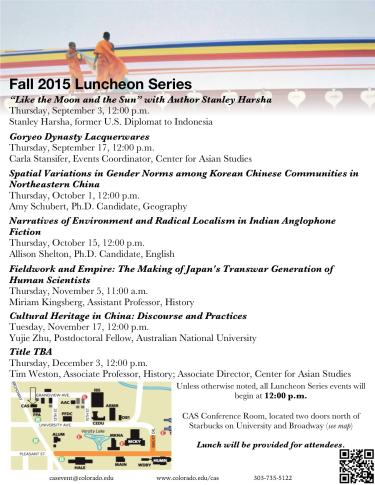
CAS Luncheon Series
Tuesday, November 17, 2015, 12:00 p.m.
CAS Conference Room, 1424 Broadway, CU-Boulder
Yujie Zhu, Postdoctoral Fellow, Australian National University
Since the UNESCO World Heritage Convention was ratified by China in 1985, the country has had forty-eight of its national sites inscribed as World Heritage. The ratification of the World Heritage Convention expresses the country’s efforts to embrace globalization, build up its national identity, and pursue economic development through the revitalization of cultural traditions and the promotion of heritage tourism.
Based on long term ethnographic research at heritage sites and cities in Yunnan, Sichuan and Shaanxi, this talk seeks to explore the multifaceted and contested nature of “cultural heritage fever” in contemporary China. I argue that culture heritage is not a global reward system, but a cultural, social phenomenon celebrated and contested by different actors. It is often not the local communities who identify what aspects of their culture should be preserved and presented. Instead, it is the central and local governments - with the help of the tourism industry, authorized agencies and mass media - that define ‘the authentic culture’ and promote it accordingly. The official heritage discourse utilizes the cultural expression of identity and sense of place and memory for political and economic control. In this presentation, I also discuss how heritage may be understood as having emotional, cultural and political consequences in peoples’ lives. Local communities are often not passive recipients of the ‘heritage effect’; rather, they consume, contest and negotiate to shape heritage policies and practices.
